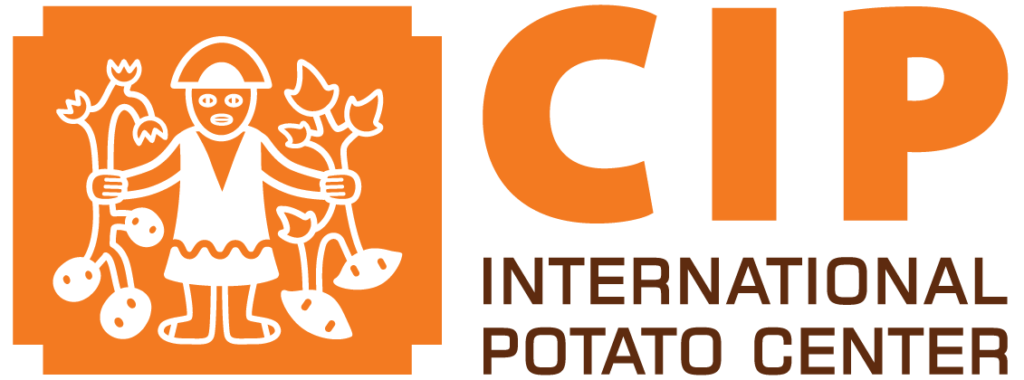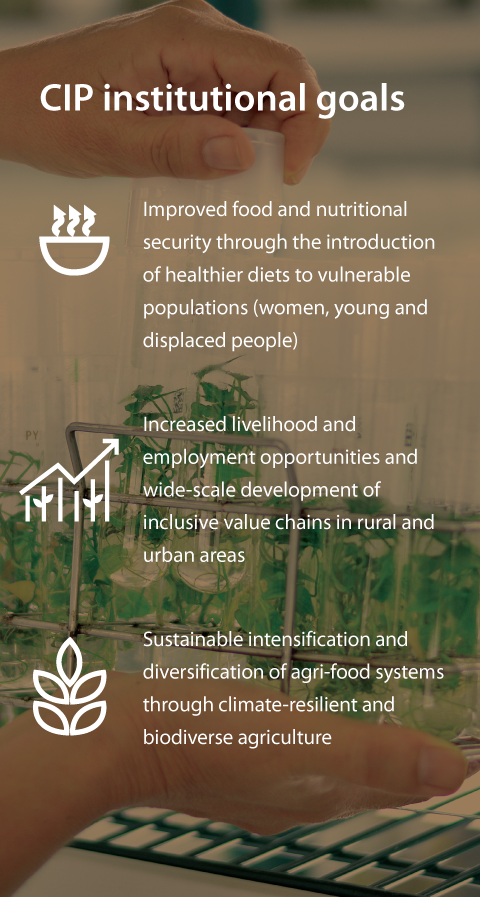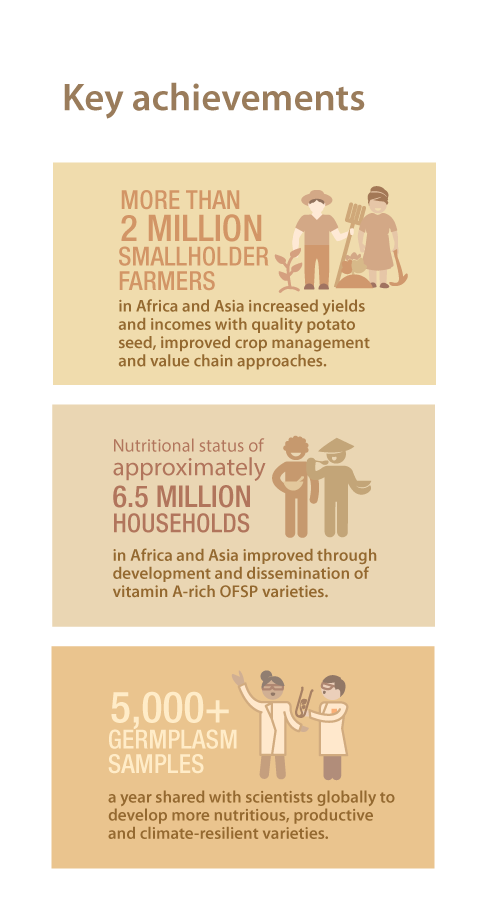Foreword

Barbara H. Wells
Director General

Rodney Cooke
Chair, Board of Trustees
As the effects of climate change on food systems become more apparent and the COVID-19 pandemic lays bare inequalities across the world, the case for investment in targeted agricultural research-for-development has never been greater. Research to enhance understanding, conservation and fair use of the world’s agrobiodiversity is crucial in building resilience in the face of global warming. Research to help increase food production by 60% over the next 30 years, while remaining within the planet’s environmental boundaries, is critical. And research for more nutritious, sustainable food systems capable of generating inclusive growth for millions of men, women and young people is needed now more than ever.
In our post-COVID world, a return to business as usual is not a viable option. More sustainable land use and enhanced food safety would offer us greater protection against the likelihood of future pandemics. Now is the time to reinvent our food, land and water systems. This does not mean starting from scratch. The International Potato Center and its partner CGIAR centers have over 50 years of experience in generating concrete outcomes. Early CGIAR research sparked major gains in agricultural productivity in developing countries which saved more than a billion people from starvation. Since then, our collective discoveries, resilient varieties, innovations and policy guidance have boosted the incomes, nutritional outcomes, and well-being of tens of millions of families globally.
The third and sixth most important food crops in terms of human consumption, potato and sweetpotato have played an important role in global efforts to reduce hunger, malnutrition and poverty. Since 2010, CIP innovations and development interventions have reached over 8.5 million households, improving diet diversity, resilience, and employment and livelihoods. While our efforts are largely concentrated in Africa and Asia, we have renovated our focus in the Andes, a biodiversity hotspot of global importance that is especially vulnerable to climate change. We have begun testing climate-smart approaches with the potential to improve nutrition security and livelihoods, both for the region and beyond.
For CIP, a more resilient future means focusing on inclusion in all our work: from the crop varieties we breed to the market innovations we develop. Adopting a gender-responsive approach produces better outcomes. As we foster positive change through our research for development, CIP has prioritized diversity across the organization. More than 40% of our personnel are women, including science leadership, senior management and the board of trustees. Diversity at CIP is a stepping-stone to more inclusive delivery.
This annual report provides snapshots of how CIP and its many partners are contributing to the transformation of food systems globally. These include discoveries and scientific breakthroughs that have accelerated breeding and the development of diagnostic tools for crop diseases; innovations and knowledge disseminated to smallholder farmers to improve seed systems in Ethiopia and Kenya; and large-scale impacts on the nutrition and livelihoods of people across Africa and Asia.
All of these achievements have been made possible by the generosity of our funders, the dedication and passion of our staff and partners and our broad-based agri-food system collaborations. Two such partnerships were hugely significant for CIP in 2019: the CGIAR Research Program on Roots, Tubers and Bananas and the new CGIAR GENDER Platform. Both have given a multi-crop focus to our interventions and innovations and sharpened the gender lens of our work.
To rise to the urgent challenges that humanity faces, CIP is working to accelerate and strengthen the transition to a more cohesive, agile and responsive One CGIAR—one that will help create a more equitable, productive and environmentally-sustainable planet for future generations: to build back better and greener.

Barbara H. Wells
Director General

Rodney Cooke
Chair, Board of Trustees






